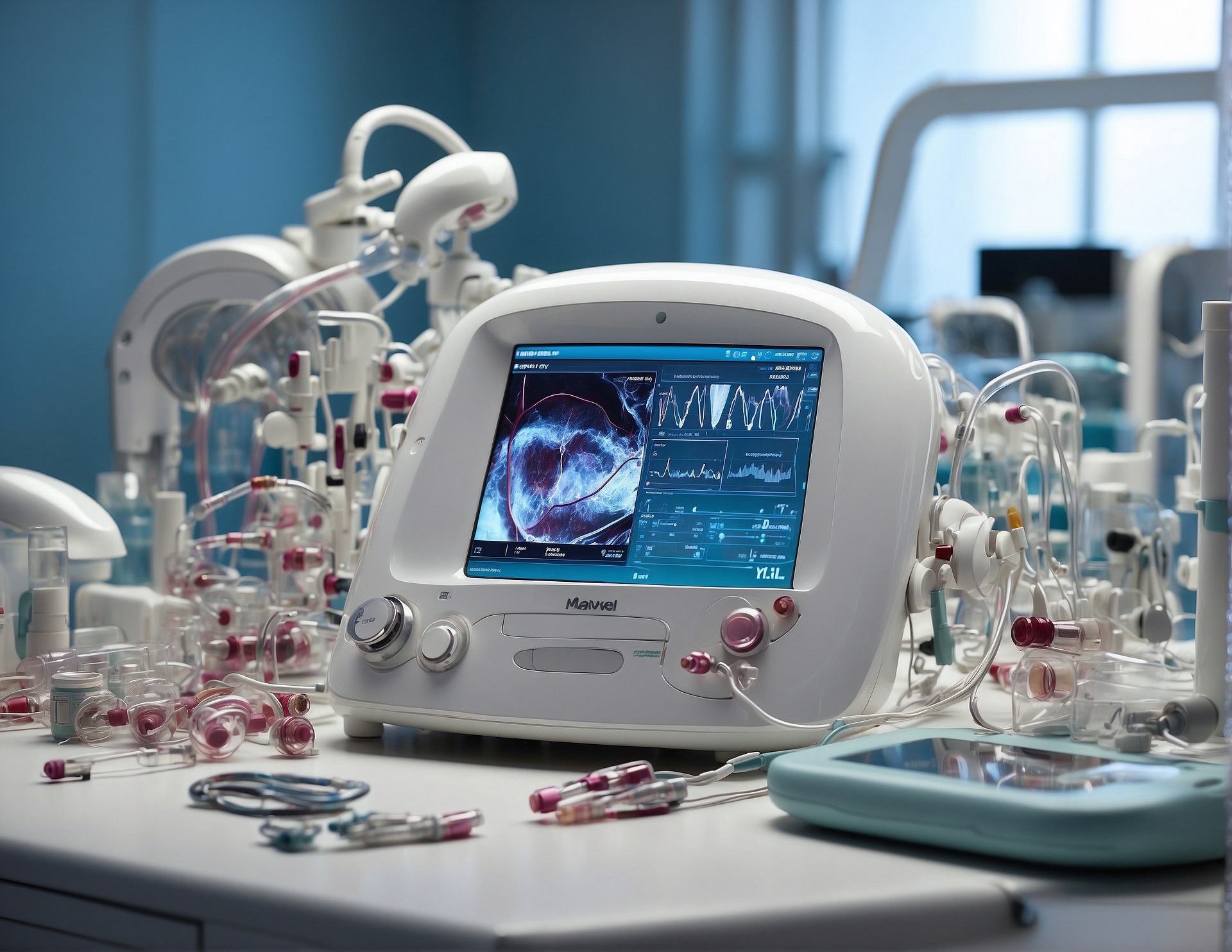By Solomon Alaka
The integration of Artificial Intelligence (AI) into healthcare has the potential to transform the sector by enhancing efficiency, improving patient outcomes, and reducing costs. As AI technologies continue to advance, there is increasing interest in their application across various domains of healthcare. However, while the benefits of AI are significant, it is crucial to assess its suitability, potential risks, and economic implications before full-scale adoption.
The Case for AI in Healthcare: Pros and Benefits
AI has already begun to make substantial contributions to the healthcare industry, offering a range of advantages:
- Improved Diagnostics: AI systems, particularly those utilizing machine learning, can analyze vast amounts of medical data to detect patterns that may be missed by human providers. In fields like radiology, AI algorithms can assist in identifying tumors in imaging scans with high accuracy. For example, AI tools have been shown to outperform human doctors in diagnosing certain types of cancer, improving early detection and patient outcomes.
- Personalized Treatment: AI can help customize treatments based on individual patient data, including genetic information, lifestyle factors, and previous health records. This approach, known as precision medicine, enhances treatment effectiveness and minimizes side effects, as it tailors care specifically to the patient.
- Operational Efficiency: AI-powered tools can streamline administrative tasks, such as scheduling, billing, and patient triage, reducing the workload on healthcare staff. Automation of these processes leads to better resource allocation, faster response times, and reduced overhead costs for hospitals and clinics.
- Predictive Analytics: AI can analyze historical health data to predict potential outbreaks, the likelihood of chronic diseases, and patient deterioration, allowing healthcare providers to take proactive measures. This predictive capacity can reduce hospital readmission rates and improve long-term health management.
- Drug Discovery: AI is being utilized in pharmaceutical research to expedite drug discovery processes. By simulating biological interactions and analyzing vast amounts of clinical data, AI can help identify promising drug candidates more quickly, thus reducing the time and cost associated with bringing new drugs to market.
Challenges and Concerns: The Cons of AI in Healthcare
Despite the clear advantages, AI in healthcare raises several concerns that must be carefully considered:
- Data Privacy and Security: AI systems in healthcare require vast amounts of patient data to function effectively. This raises significant concerns about data privacy and security, as improper handling of sensitive health information could lead to breaches and misuse.
- Bias in Algorithms: AI systems are only as good as the data they are trained on. If the training data is biased or incomplete, the AI may produce inaccurate or unfair results. For example, AI systems trained primarily on data from one demographic group may not perform as well for others, potentially leading to unequal treatment outcomes.
- Lack of Human Oversight: While AI can assist in decision-making, human oversight remains critical. Over-reliance on AI in complex medical decisions can result in errors, particularly in cases where the AI’s recommendations deviate from standard medical practices or where the data is insufficient or flawed.
- Regulatory and Ethical Issues: The integration of AI in healthcare presents regulatory challenges. Governments and medical bodies must create frameworks to ensure that AI systems meet safety and efficacy standards, and ethical concerns must be addressed, such as how much decision-making should be delegated to machines.
- Workforce Displacement: There is concern that the widespread use of AI may reduce the demand for human workers in certain areas of healthcare, particularly in administrative roles. While AI can enhance productivity, it may also lead to job displacement if not implemented thoughtfully.
Suitability of AI Across Different Medical Sectors
AI is not universally applicable to all areas of healthcare, and its most effective use is in specific sectors where its strengths align with existing needs:
- Diagnostics and Imaging: AI has demonstrated exceptional performance in radiology, pathology, and dermatology, where it can assist in interpreting medical images, identifying abnormalities, and making accurate diagnoses. AI tools can analyze X-rays, MRIs, CT scans, and other imaging techniques to detect signs of disease that may be invisible to the human eye.
- Clinical Decision Support: In areas like oncology and cardiology, AI can support clinicians in making complex decisions. By analyzing vast datasets, AI systems can recommend the most effective treatment plans based on the patient’s condition, history, and research data.
- Telemedicine: AI plays a significant role in telemedicine by enabling remote consultations, patient monitoring, and virtual health assistants. AI-powered chatbots and virtual assistants can guide patients through symptoms, provide medical advice, and recommend when to seek further medical attention.
- Robotics: In surgical procedures, AI-driven robots are being used to assist surgeons in performing complex operations with greater precision. These robots can enhance the accuracy of procedures, reduce recovery times, and improve patient outcomes.
- Personalized Medicine: AI is essential in areas where treatments need to be tailored to individual patients. Its ability to analyze genetic data, medical histories, and lifestyle factors makes it an invaluable tool in personalized healthcare.
Cost Implications and Economic Benefits
The financial implications of adopting AI in healthcare are both significant and promising. The initial investment in AI infrastructure, training, and data acquisition can be high. However, over time, the economic benefits can outweigh these costs:
- Cost Savings: AI can lead to substantial cost savings by streamlining operations, reducing diagnostic errors, and minimizing the need for unnecessary tests and treatments. By automating routine tasks, healthcare providers can redirect resources to more critical areas.
- Increased Productivity: AI-enhanced tools can significantly increase the productivity of healthcare professionals, allowing them to focus on more complex tasks that require human expertise. This increases the capacity of healthcare systems, especially in under-resourced areas.
- Improved Patient Outcomes: AI’s ability to predict patient conditions and recommend personalized treatments can result in improved patient outcomes, reducing the burden of chronic disease and preventing hospital readmissions, which in turn reduces long-term healthcare costs.
- Service Enhancement: AI can provide faster, more accurate diagnoses and treatment plans, leading to enhanced service quality. This can improve patient satisfaction and reduce wait times, especially in regions with high patient volumes.
Conclusion: Navigating AI Integration in Healthcare
The integration of AI into healthcare holds tremendous promise, offering both opportunities for enhanced service delivery and challenges that must be carefully managed. For AI to be successfully adopted, it is essential that healthcare providers prioritize transparency, data security, and the continued involvement of medical professionals in decision-making processes.
While AI is most suitable for areas like diagnostics, clinical decision support, and telemedicine, it must be applied strategically across the healthcare system to maximize its benefits while minimizing potential risks. With careful implementation, AI can revolutionize healthcare by improving patient care, increasing efficiency, and driving down costs — ultimately leading to a more sustainable and accessible healthcare system.
References:
- Topol, E. (2019). Deep Medicine: How Artificial Intelligence Can Make Healthcare Human Again. Basic Books.
- Brynjolfsson, E., & McAfee, A. (2014). The Second Machine Age: Work, Progress, and Prosperity in a Time of Brilliant Technologies. W. W. Norton & Company.
- Deloitte. (2023). AI in Healthcare: Unlocking Potential, Managing Risks. Deloitte Insights.



